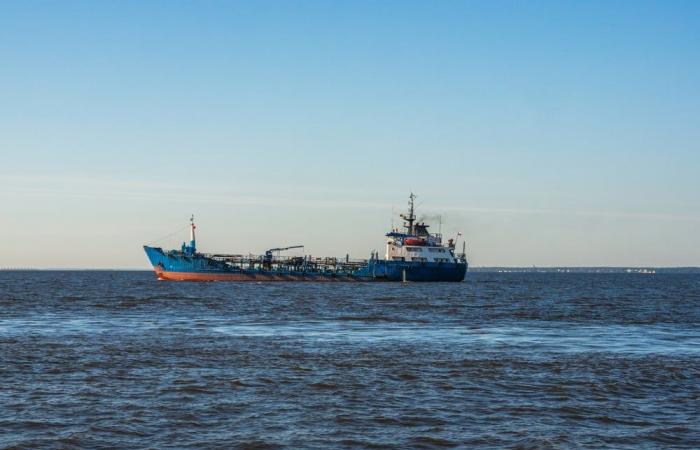Since the invasion of Ukraine in 2022, the Russian government has relied on sophisticated ploys to evade Western sanctions targeting its energy sector. These tactics include the use of a “ghost fleet” to export oil and gas by circumventing embargoes and price caps. Faced with this threat, the United Kingdom recently announced a new set of sanctions specifically targeting these ships. A look back at a large-scale economic and diplomatic strategy.
The “ghost fleet”: an opaque network of old ships
Russia's ghost fleet is made up mainly of antiquated, often poorly maintained ships that operate in the shadows to transport Russia's crude oil to destinations banned by sanctions. This fleet is estimated to number up to 2,000 ships, some of which are capable of carrying more than 100 million liters of oil at a time. These tankers sail discreetly, turning off their transponders and carrying out cargo transfers on the open sea, a method that complicates traceability.
This fleet today represents 80% of Russian crude oil exports, particularly via maritime routes such as the Baltic Sea. These practices allow Russia to maintain substantial revenues despite restrictions, which represent between 30% and 50% of the national budget.
A British response coordinated with the G7
The United Kingdom recently struck hard by sanctioning 30 additional ships linked to this ghost fleet, bringing to 73 the total of ships banned from accessing British ports and the country's maritime services, particularly in terms of insurance. These measures, announced by David Lamm, British Foreign Secretary, during a G7 meeting, mark “the largest package of sanctions ever adopted against the Russian ghost fleet”.
The sanctions, which prevent these ships from receiving essential services, aim to suffocate their activity. Since the European Union embargo in 2022 and the introduction of a price cap for Russian hydrocarbons in 2023, the United Kingdom and its G7 allies are increasingly concerned about the expansion of these clandestine practices.
Economic and environmental implications
The economic consequences for Russia are notable. In October 2024, the Kremlin's oil revenues fell 29% from the previous year, reaching around $10.7 billion, according to Bloomberg. However, clandestine exports continue to limit the effectiveness of sanctions.
Beyond the economy, these practices pose a major environmental risk. Old ships used by the ghost fleet pose an increased danger of leaks or ecological disasters, especially in areas like the Baltic or off Gotland, Sweden. These concerns have led MEPs to call for stricter maritime controls and stronger sanctions to combat these illicit activities.






